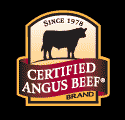Is Biodefense Lab on the Horizon?
The proposed National Bio and Agro-Defense Facility in Manhattan faces an uncertain future.
The proposed National Bio and Agro-Defense Facility planned for Kansas moved onto the endangered list Monday after the Obama administration's 2013 budget cut all construction spending for the facility.
Instead, the White House said it will re-examine plans to build the $1 billion project — aimed in part at protecting the nation's food supply from terrorism — which the government awarded to Manhattan, Kan., after a fierce nationwide competition in 2008.
The Department of Homeland Security wants to replace the aging Plum Island Animal Disease Center in New York, where scientists study dangerous agriculture-related pathogens such as foot-and-mouth disease (FMD).
The government had planned to open the proposed Kansas facility, known as NBAF for short, in 2020. Now that timetable, and perhaps the entire project, is in serious doubt. Read more.
President's Budget Threatens to Tax Agriculture
Out of Business
NCBA calls estate tax counterproductive to Obama's stated goals.
President Barack Obama Feb. 13, 2012, proposed a multi-trillion-dollar-budget. The president said the budget is designed to spur job creation and impose higher taxes on the rich. However, National Cattlemen's Beef Association (NCBA) President J.D. Alexander said the president's take on the estate tax threatens job creation and punishes the producers of food and fiber.
"President Obama has much to learn about the realities of small businesses and production agriculture. Most of these farm and ranch families are not wealthy. Instead, their value is tied up in the land they work and the equipment they use to provide a safe and affordable food supply for a growing population," said Alexander. Read more.

David Gazda
Association Perspective
Low-birth-weight EPDs
Looking at a single trait on EPDs costs performance and money.
One of the most common concerns I hear from commercial producers using Angus genetics is the size of calves at birth. Instinctively, my first thought is that the producers experienced calving problems due to the calves being too large at birth. However, the problem generally tends to be just the opposite, where the calves have been extremely small and light at birth, struggled to nurse and never caught up with their contemporaries from a growth standpoint. Read more.
ILC–USA
Summary and Take-home Messages
In the closing session of the International Livestock Congress (ILC)–USA 2012, hosted Jan. 10 in Denver, Montana State University Extension Beef Specialist John Patterson recounted the issues addressed by conference speakers. Meat scientist Gary Smith offered his interpretation of the take-home messages. Click here to read their summary and link to meeting coverage provided by Angus Productions Inc. (API) staff.
Walmart Unveils 'Great For You' Icon
Icon to appear on hundreds of food items intended to provide simple way to make healthier food choices.
 A year after pledging to develop a front-of-pack label that would give its customers an easier way to identify healthier food, Walmart unveiled the "Great For You" icon Feb. 7 in Washington, D.C. The icon, part of the company's healthier food initiative, is an effort to implement a transparent, summary icon for its private label brand products backed by rigorous nutrition criteria.
A year after pledging to develop a front-of-pack label that would give its customers an easier way to identify healthier food, Walmart unveiled the "Great For You" icon Feb. 7 in Washington, D.C. The icon, part of the company's healthier food initiative, is an effort to implement a transparent, summary icon for its private label brand products backed by rigorous nutrition criteria.
"Great For You" will initially appear on select Walmart Great Value and Marketside items, as well as on fresh and packaged fruits and vegetables at Walmart U.S. stores nationwide this spring. By extending "Great For You" to fruits and vegetables and nutritious food options, the company will make it easier for its customers to build healthier diets. Read more.
Playing the System
Food nutrition labels are influencing health-conscious consumers to choose more calories, says Colorado State University study.
In a recent study, Colorado State University marketing professor Gina Mohr has uncovered facts about nutrition labeling that might change how food purchasing decisions are made.
Mohr, working in tandem with University of Colorado professor Donald Lichtenstein and University of Florida professor Chris Janiszewski, found that by adopting a smaller serving size, food manufacturers are able to reduce the reported calories, fat, sugar and carbohydrates in a product serving, which, in turn, can influence the buyer's feelings about purchasing and consuming that food item.
The researchers published the findings of three separate studies on nutrition labeling and health communications in the American Marketing Association's most recent edition of the Journal of Marketing. The study found that systematic changes in the number of servings per package, and thus the number of calories reported per serving, can affect consumers' anticipated guilt of consuming the food and intent to purchase it. Read more.
What’s Inside …
In this February edition of the Angus Beef Bulletin EXTRA, you'll find valuable articles devoted to the management, marketing, and health and nutrition of your beef enterprise. Select from the tabs at the top of the page to access this month's entire offering by category. A few select features include:
- Cow Camp Chatter: Hypothermia and Thermogenesis
- Grain Markets Encourage Forage Use
- Beef Talk: Cattle size is different than cow size.
- Weigh 'em Up
- Oral or IV
- Opportunities Outside the Border
- The Source: Busting myths and misconceptions.
News Briefs …
The American Angus Association and its subsidiaries generate a wealth of information to keep members and affiliates informed of what's happening within the industry as well as with the programs and services they offer. Click here for easy access to the newsrooms of the American Angus Association and Certified Angus Beef LLC and the Angus e-List archive.
Heart-healthy Choice
BOLD research is highlight of Federation Forum.
Evidence indicates lean beef can play a significant role in the diets of people striving to lower blood cholesterol. Results from studies initiated with beef checkoff dollars were reported during the National Cattlemen's Beef Association (NCBA) Federation Forum, convened during the 2012 Cattle Industry Convention in Nashville, Tenn.
Reporting initial results was Penny Kris-Etherton, professor of nutrition at Pennsylvania State University and lead investigator for the Beef in an Optimal Lean Diet (BOLD) project. She said earlier studies of beef's association with cardio-vascular disease have yielded mixed results. Yet beef has been called a major contributor of dietary fat when most of the fat actually comes from other foods. Often overlooked are the changes that have occurred in beef composition, including a reduction in overall fat content and a reduction in saturated fat of about 30%. Read more.
[Click here to go to the top of the page.]













